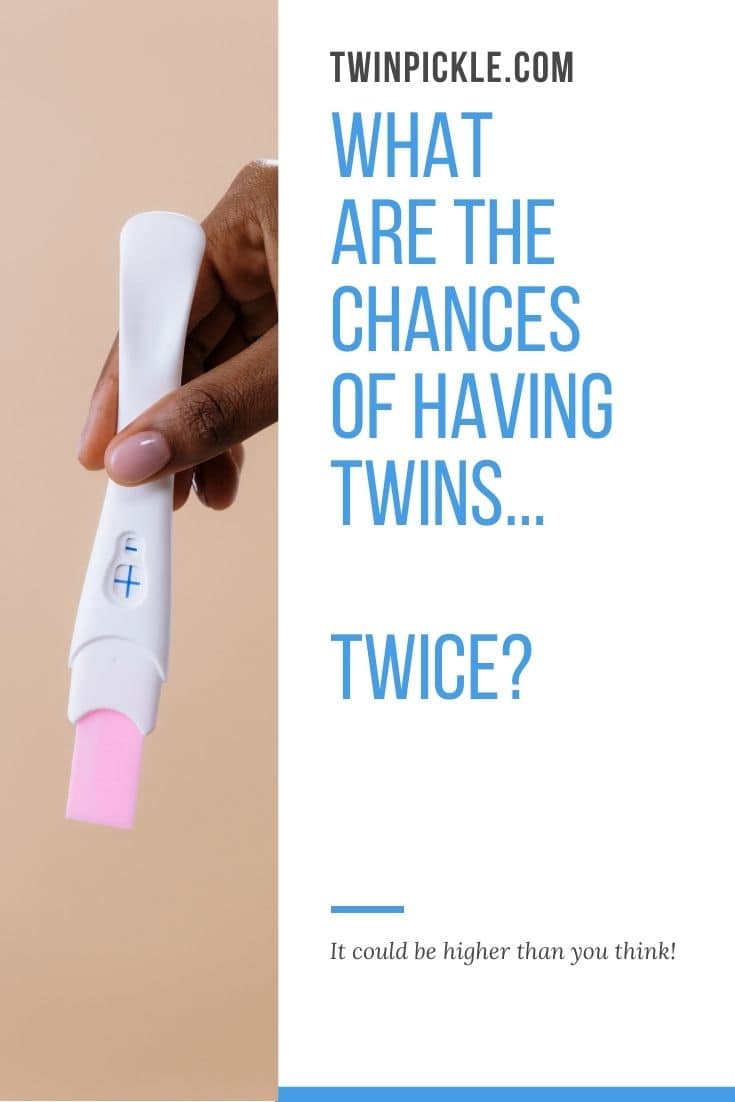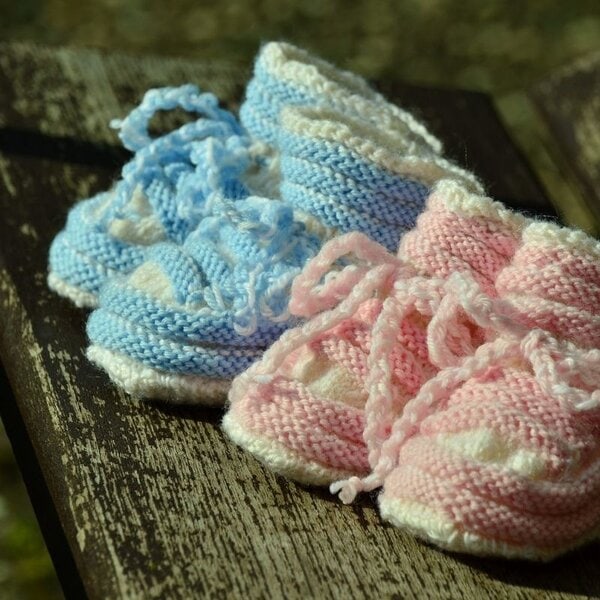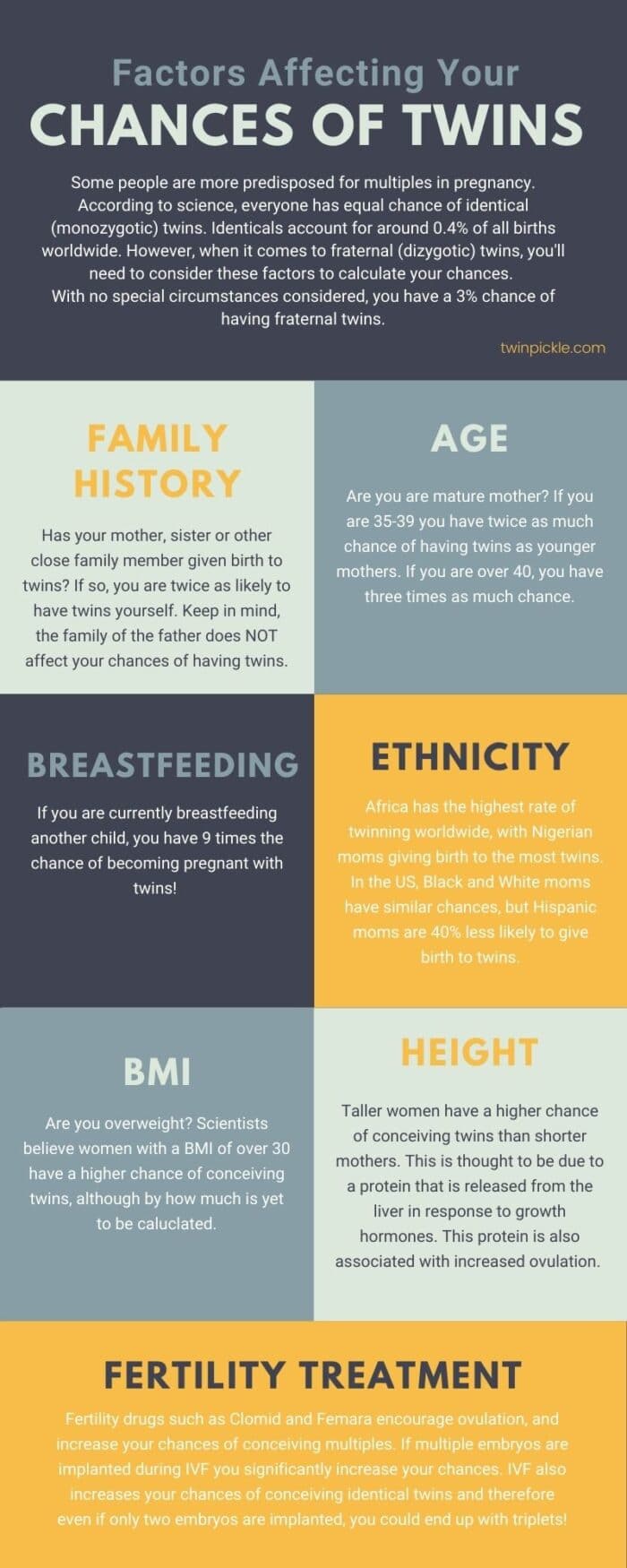The first time around may have been a surprise, but a second pregnancy may have you thinking. What are the chances of ending up with two or more sets of twins? How often do moms give birth to more than one set of twins?
As a twin mom blogger, I am in a number of twin parenting groups. I don’t know if there’s something in the water, or there’s some extra canoodling going on because of lockdown, but there seems to be a lot of Mamas taking pregnancy tests. I keep seeing panicked posts reading “What are the chances I’ll have twins again?”. Whether the prospect of multiple multiples is exciting or terrifying, we all want to know the statistical chances. I decided to do a deep dive and crunch some numbers.

What are the Chances of Having Twins (In General)?
Identical (Monozygotic) Twinning
Firstly, we have to clarify what kind of twinning we’re talking about. MonoZygotic twins (identical) occur when a single egg and sperm create a zygote that splits (clones) and creates a copy of itself. This happens in 3 to 4 per 1,000 births worldwide. According to current science, everyone has an equal chance of having identical twins, because they are not hereditary. There are many families with multiple identicals who would argue differently, and if you’re interested in some of the possible theories to prove science wrong, check out my post on identical twinning.
Fraternal (Dizygotic) Twinning
Dizygotic (fraternal) twins occur when a woman releases two eggs at once and both are fertilized separated by two different sperm. You’re essentially getting pregnant twice and birthing regular siblings… just at the same time. The chances of having dizygotic twins are linked to your genetics because the tendency to release more than one egg at a time is hereditary. This means Dad being a twin is actually irrelevant because he can’t affect your chances of releases multiple eggs. He could however affect the chances of your daughter releases multiple eggs in the future. This is why some say twins skip a generation.

“Compared with the general population, women with a mother or sister who have had DZ twins are about twice as likely to have DZ twins themselves.”
MedlinePlus.gov
Factors Affecting your Chances of Naturally Conceiving Fraternal Twins:
- Has your mother or sister been pregnant with twins? If so, you are twice as likely to have twins yourself.
- What is your ethnicity? If you’re living in the US and are Black or White, you have a similar chance of having twins (with Black moms having a slightly higher chance). Hispanic moms however are around 40% less likely to give birth to twins.
- How old are you? Mature mothers are up to three times as likely to get pregnant with twins than younger ladies. This is because as we approach menopause we tend to hyper-ovulate and release more eggs.
- Are you still breastfeeding? If you become pregnant while breastfeeding, you are 9 times more likely to become pregnant with twins. Those hormones!
- What is your BMI? Women with a BMI of over 30 have a higher chance of conceiving twins.
- How tall are you? Taller women are more likely to conceive twins than shorter women. This is thought to be due to an insulin-like growth factor which is also linked to hyperovulation.
“In 2009, 7 percent of all births to women aged 40 and over were born in a twin delivery compared with 5 percent of births to women aged 35–39, and 2 percent of births to women under age 25.”
Three Decades of Twin Births – CDC.gov
Overall, the current data states that in the US, 32.6 live births per 1,000 are twins. This gives everyone a 3.3% general chance of birthing twins. Double it if you have fraternal twins in your close family. Double it again if you’re mid-30s-40. Triple it if you’re over 40. Reduce it a little if you’re of Hispanic origin.

What are the Chances of Having Twins Again?
As you can see, there are many factors affecting your calculated chance of having twins, and things only get more complicated if you have had twins before. Overall, mothers of fraternal (non-identical) twins are four times more likely to have twins if they get pregnant again, compared with the rest of the population.
“For a woman who has had one set of non-identical twins, the chance of another set is not 112 to one, but just 28 to one.
Double treble: What’s the chance of having three sets of twins? BBC News
But… don’t forget to factor in your personal circumstances. For example, if you had your first set of twins at 25 and you’re now pregnant at 39, you’re even more likely to have twins than before. If you’re a twin yourself, and you have a long family history of twins, your chances are going to be even higher.
This is not an exact science, and statistics change every year. In fact, the chances of twins continue to increase, mainly due to mothers having children later in life and the increase of fertility treatments. Still, using some of the data above you can get a good idea of your chances of having a second set of twins.
For example: If you are a woman in your late 30s, breastfeeding, carrying some extra postpartum weight, and you already have one set of twins, the chances of having twins again is high! Here’s to happy double twinning!


What if you’re breastfeeding twins when you get pregnant? Does that raise your chance higher?